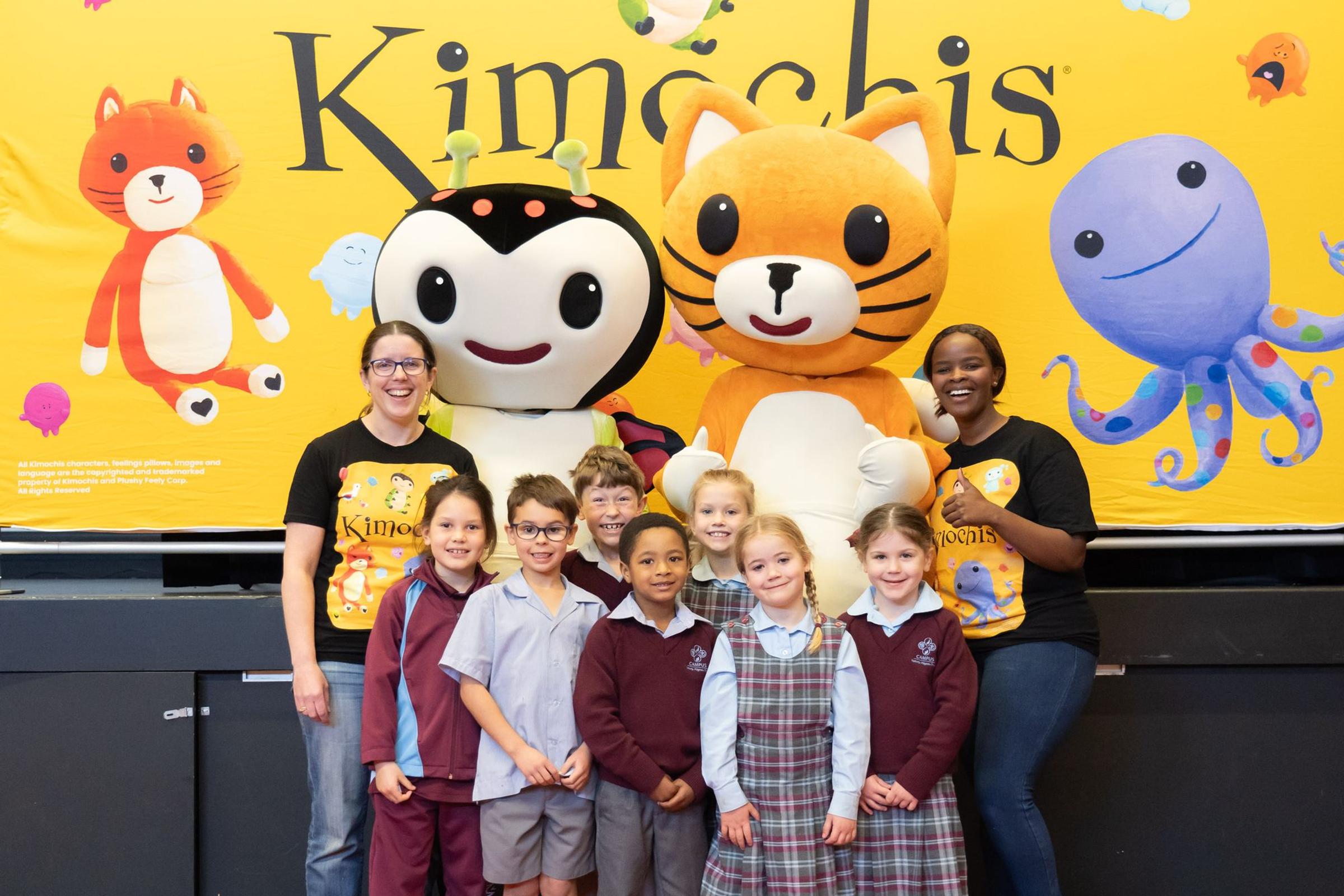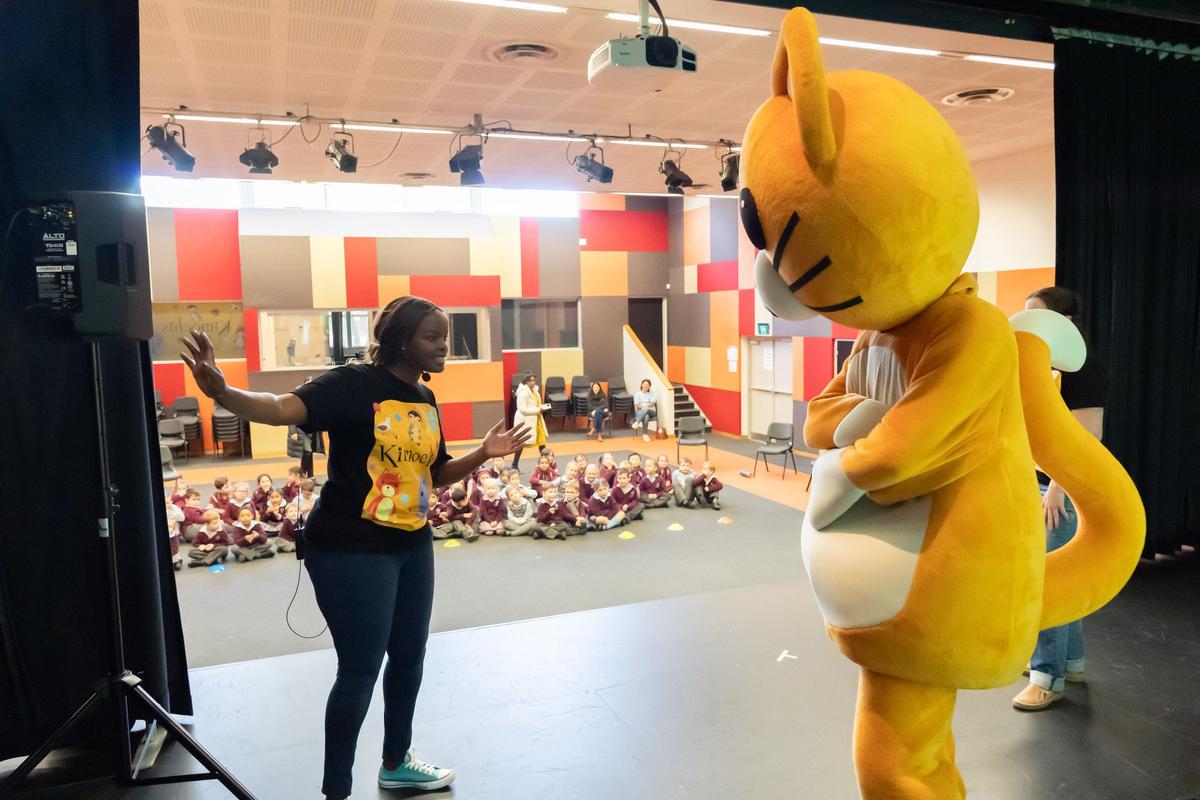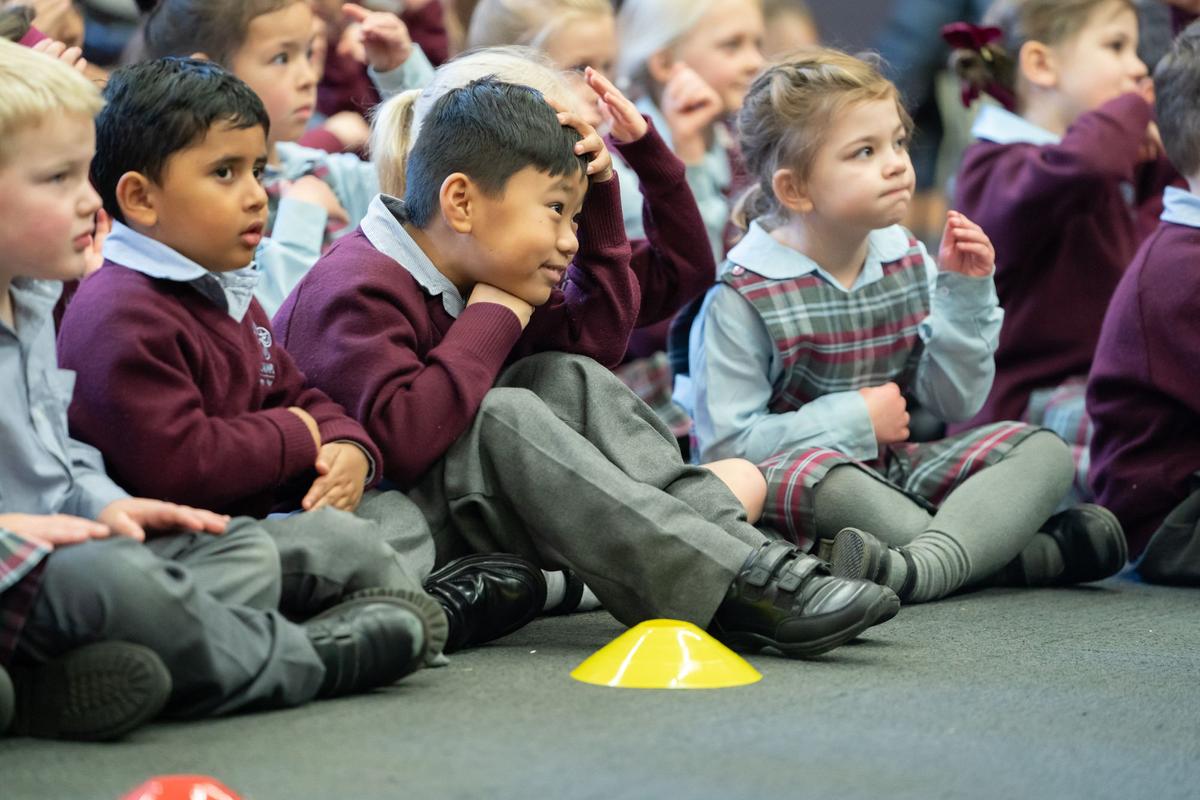Wellbeing

Kimochis
Last month the Foundations - Year 2 students were treated to a special visit from some very cute and special characters.
The Kimochis from the SMG Adelaide (Schools Ministry Group) team, came to present a show. Kimochis are a playful way to help children learn how to identify and express feelings. When children can communicate their feelings effectively, they develop positive social skills that lead to lasting friendships and success in all aspects of life. The show was specifically designed to help students identify and discover what different emotions can look and feel like.
It was a colourful, fun presentation filled with songs, games and interaction. Many students were talking about their opportunity to 'high five' Bug or Cat for several days after the show.
Carol Harry
Wellbeing Team
Resources from the Fathering Project
Managing Kids' Mental Wellbeing and Knowing How to Read Their Moods
The First Step to Manage our Kids' Emotions is to be able to Identify Them
Children usually don’t have a wide range of vocabulary to fully describe and explain how they are really feeling and often use the basic terms happy, sad, angry, scared etc. to describe their feelings.
But we know there are many more emotion words that we use every day, or we have heard others use, that help us to describe how we are really feeling. For example – when we are looking forward to Christmas, we might say we are feeling excited, curious, thrilled, eager, and enthusiastic, which are all different intensities of the emotion of happiness.
Tips for Developing Emotional Understanding with Your Child
- Bring your child’s attention to emotions. When your child or someone else (family members, friends, character in a book or on TV) is expressing an emotion, use the opportunity to label the particular emotion. “I can see you are feeling annoyed, tell me about how you are feeling”.
- Never discount their emotions. If your child talks about their emotions, always encourage this and if they are feeling unpleasant emotions, let them know you can help them to find ways to feel better.
- Help them learn the names of emotions. Discuss the everyday feelings they experience and encourage them to use descriptive words to describe how they feel. “When I am feeling a little bit angry, I might say I am feeling frustrated or I am feeling annoyed”.
- Talk about how you feel. Demonstrate the use of different language to describe how you feel to show how feelings can change throughout the day.
- Use stories to explore emotions. Stories that describe people expressing their emotions can help your child to learn about emotional responses. It also helps them to relate to the emotions of others which supports the development of empathy for others.
- Watch TV or movie characters’ responses together. Identify the emotions and responses of the characters or discuss your own emotional responses to the content. “How would you feel if that happened to you?” and “How would you deal with that situation if it happened to you?”.
The following link has a video about this topic.
Brett Middleton
Wellbeing Coordinator
Friendology
I have three children. While they're all sensitive souls in their own way, my middle boy is the most sensitive of the bunch. I found the URStrong blog from Dana on 'Friendships for Highly Sensitive Children' to be both enlightening and helpful. While I'm aiming on being my son's friend, I have a more important role as his father. We still have occasional friendship fires, which can feel like a blazing inferno when I'm not being sensitive to his needs. Please see the link below containing some helpful information on this topic.
Friendships for Highly Sensitive Children | URSTRONG
A couple of standouts and challenges for me include:
- Avoid violent, disturbing and scary experiences for your highly sensitive child. While I love excitement, adventure and a bit of action in a good story or film, my lad often finds it too much. Try to find strategies that give a greater sense of emotional control for when your highly sensitive child is ready.
- Highly sensitive children are very tuned in to others. This point was super challenging because kids can be mean without thinking about it. You've probably seen or heard a comment that has no social cue, point of reference or appropriateness at all. It is definitely helpful being 'tuned in to others' in the empathy space, but processing the 'mean', can take a bit of work.
The Friendology program is free and fully accessible for parents and there are lots or informative resources for you to use with your children.
Jordan Wheatcroft
Wellbeing Team









